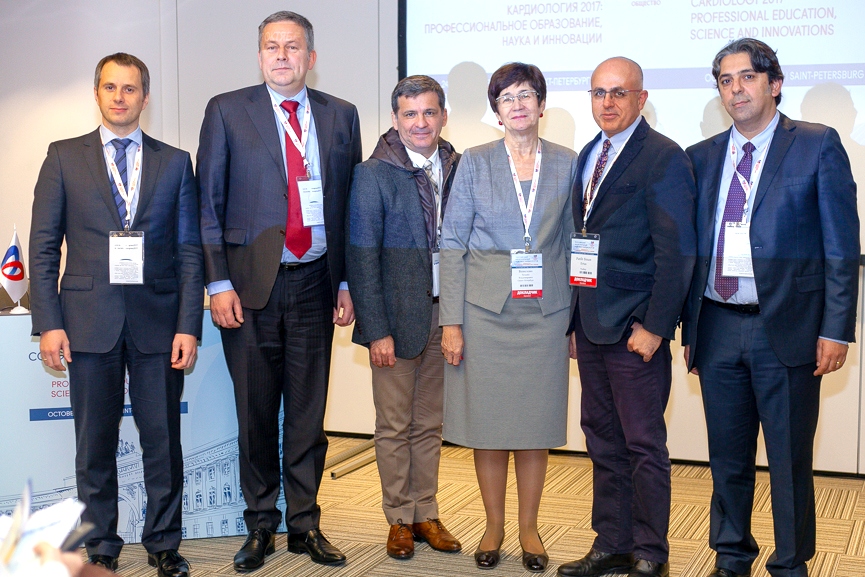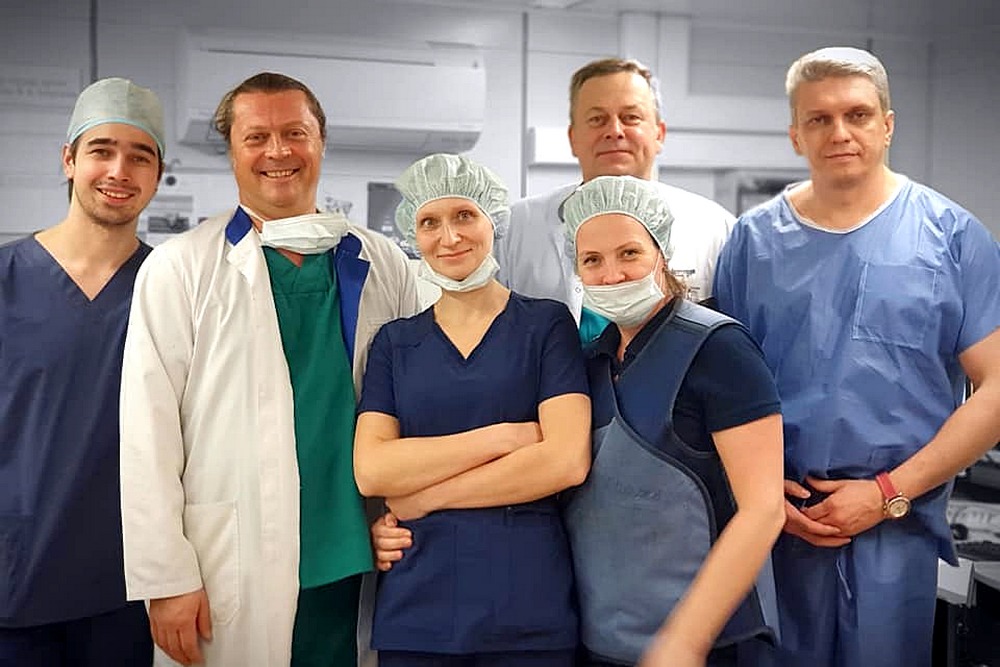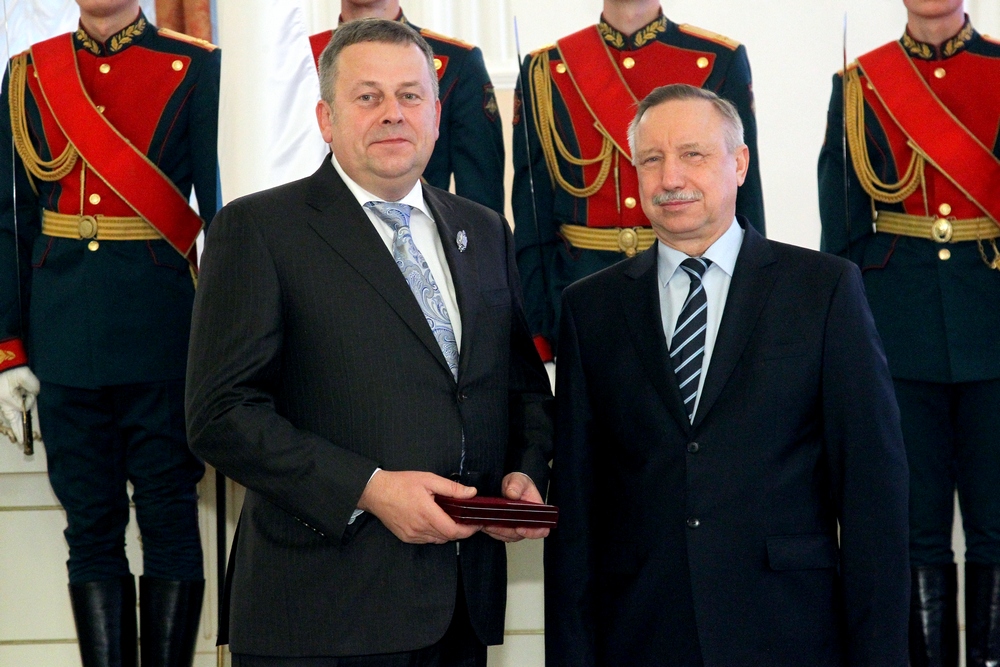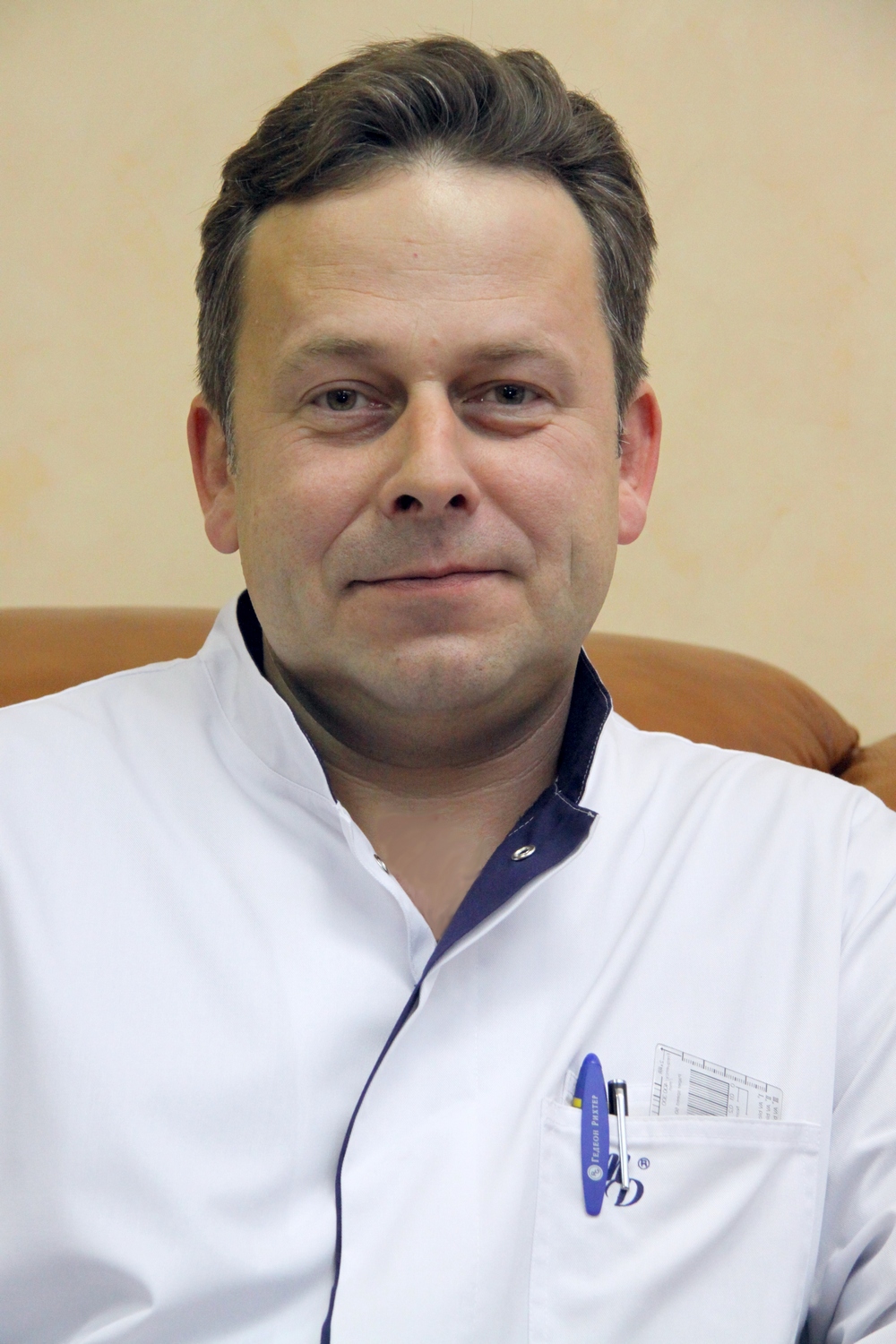Arrhythmology Research Department



 Dmitry Lebedev, MD, DSc
Dmitry Lebedev, MD, DScHead of Department, Professor of RAS
History
The history of the arrhythmology research department dates back to December 1986 when the electrophysiology study unit was created by order and with the personal participation of Director of Cardiology Research Institute, Professor Vladimir Almazov. Professors L. V. Chireikin, Yu. V. Shubik, B. A. Tatarsky were at the root of the development of the arrhythmology service.
Structure
- Interventional Arrhythmology Research Laboratory
- Clinical Arrhythmology Research Laboratory
- Neuromodulation Research Laboratory
Major research areas
- Fundamentals of ventricular and supraventricular arrhythmias.
- Search for predictors of successful treatment of tachy- and bradyarrhythmias.
- Improvement of selection criteria, implantation techniques and postoperative management of patients with cardiac implantable electronic devices.
- Molecular and genetic mechanisms of cardiac remodeling and predictive markers for the course of CHF in patients with post-infarction cardiosclerosis.
- Study of the mechanisms of autonomic circulatory regulation and the development of methods for the diagnosis and treatment of cardiovascular diseases based on the impact on the autonomic nervous system.
- Development of personalized mathematical models for predicting functional geometry and reverse myocardial remodeling in interventional therapy for chronic heart failure using molecular and electrophysiological methods.
- Investigation of the methods to improve the quality of care using information technology and machine learning algorithms to develop personalized approaches to the management of patients with atrial fibrillation
- Non-invasive electrophysiological mapping in patients with arrhythmias and conduction disorders.
- Modulation of autonomic nervous system activity.
Newly developed and implemented technologies
- For the newly proposed method – a pulsed radio-frequency current, an experimental generator was developed, the patent of the Russian Federation was obtained, the advantages of the method in comparison with traditional myocardial exposure were shown.
- Practical application of endomyocardial biopsy with subsequent histological / immunohistochemical studies in diagnosing the etiology of arrhythmia.
- Criteria for assessing electrical and mechanical myocardial dyssynchrony in the genesis of heart failure and the possibility of its surgical repair were developed; the predictors of high and low response to cardiac resynchronization therapy were found.
- New approaches for non-invasive electrophysiological mapping of the myocardium in abnormalities of the cardiac conduction system were proposed.
- Comprehensive research is underway to introduce personalized mathematical models in order to predict the course and outcomes of arrhythmias and myocardial conduction disorders.
- Methods are being developed to study the neurogenic regulation of the pulmonary circulation and remodeling of the pulmonary artery and to substantiate a new treatment method for pulmonary hypertension.
- New technologies were proposed to improve the quality of medical care using machine learning algorithms for the development of personalized approaches to the management of patients with atrial fibrillation.
- Prognostic criteria determining the success of radiofrequency and cryoablation of cardiac arrhythmias are being developed based on the dynamics of the level of myocardial damage markers in children and adolescents.
- The results of clinical and basic research by the specialists of the Arrhythmology Research Department are transferred to the clinic of Almazov Centre and make it possible to increase the effectiveness of treatment of complex heart rhythm disorders.
State Assignments
The Arrhythmology Research Department is actively involved in the development and implementation of various topics for state assignments:
Topic 1. Study of the morphological and electrophysiological properties of the sinus node and myocardial telocytes for the diagnosis and cell therapy of cardiac arrhythmias.
Topic 16. Risk stratification, routing, selection of the optimal treatment strategy and early prediction of outcomes in patients with cardiac emergencies based on decision support systems.
Topic 26. Personalized medicine in choosing a strategy for the diagnosis and treatment of heart failure due to heart remodeling in congenital heart defects, arrhythmias and genetically determined myocardial diseases in children.
Topic 31. Molecular and genetic mechanisms of cardiac remodeling and predictive markers for the course of CHF in patients with post-infarction cardiosclerosis.
Topic 36. Studying the mechanisms of autonomic circulatory regulation and the development of methods for the diagnosis and treatment of cardiovascular diseases based on the impact on the autonomic nervous system.
Application prepared for 2021—2023: Development of personalized mathematical models for predicting functional geometry and reverse myocardial remodeling in interventional therapy for chronic heart failure using molecular and electrophysiological methods.
Grants
Major topics:
- Grant of the Russian Foundation for Basic Research No. 18-315-20050 “Development of a method for studying the neurogenic regulation of the pulmonary circulation and pulmonary artery remodeling and substantiation of a new treatment method for pulmonary hypertension by selective effect on neural elements” (supervised by E. Mikhailov, 2018—2020).
- Grant of the Russian Ministry of Science and Higher Education No. МД-2314.2020.7 (Contract 075-15-2020-379) “Development of methods to improve the quality of medical care using IT and machine learning algorithms for the development of personalized approaches to the management of patients with atrial fibrillation (supervised by E. Mikhailov, 2020—2021).
- Grant of the Russian Ministry of Science and Higher Education МК-2330.2020.7 (Contract 075-15-2020-381) “Study of the effect of denervation of the trunk and distal branches of the renal arteries on the vascular wall of the arteries and hemodynamics of the pulmonary circulation” (supervised by A. Alieva, 2020—2021).
- Grant of the Russian Foundation for Basic Research 19-31-50047 “Study of the excitation processes in human myocardium in chronic heart failure through personalized mathematical modeling” (supervised by D. Lebedev, 2020).
- Grant of the Russian Science Foundation “Development of a hybrid method of biophysical modeling of electromechanical myocardial function and machine learning to improve the efficiency of diagnosis and treatment of chronic heart failure” (supervised by: O. Solovyova, 2019—2021).
- Grant of the Russian Ministry of Science and Higher Education No. 075-15-2019-232 “Clinical and prognostic value of the dynamics of the level of myocardial damage markers after radiofrequency and cryoablation of cardiac arrhythmias in children and adolescents” (supervised by: R. Tatarsky, 2019—2020).
- Grant of the Russian Foundation for Basic Research 18-315-00261 “Development of a personalized 3D model for predicting the effectiveness of resynchronization therapy based on a combination of data on structural changes in the myocardium, electrical dyssynchrony and anatomy of the cardiac venous system” (supervised by: S. Zubarev, 2018—2019).
- Grant of the Russian Ministry of Science and Higher Education Np. 075-15-2019-160 “Development of a personalized computer model of electrotherapy in patients at risk of sudden death and with heart failure” (supervised by: T. Lyubimtseva, 2018—2019).
Training and education
- Annual School of Practical Arrhythmology at Almazov Centre.
- Scientific and practical conferences with international participation (Forum of Arrhythmology, Sudden Cardiac Death, etc.).
- Educational modules and lectures for interns, residents and PhD students of Almazov Centre.
- Training cycles for doctors on the areas of interventional arrhythmology and cardiac pacing.
- Training cycles for foreign participants in English.
Editorial membership
- Russian Journal of Cardiology
- Translational Medicine
- Bulletin of Arrhythmology
- Arrhythmia Grand Round
International collaboration
- Joint Study Agreement No. W1872788 dated 08.2018 between Almazov Centre and Thomas J. Watson Research Centre, International Business Machines Corporation (IBM), USA.
- Research collaboration with Gent University, Belgium, Reference No. Uw-01. Head of Laboratory: Prof. Alexander Panfilov.
- Cooperation with St. Elizabeth's Medical Centre and Tufts University (Boston, USA) – Michael Orlov.
Research collaboration
Collaborative Research Agreement between Almazov Centre and the Institute of Immunology and Physiology, Ural Branch of the Russian Academy of Sciences.
Membership in scientific societies
Russian Scientific Society of Arrhythmology
- Lebedev – Vice President, Chair of the Saint Petersburg Branch.
- Mikhailov, V. Lebedeva – board members of the Expert Committee on Programming and Remote Monitoring of implantable electronic devices.
- Lebedeva, T. Lyubimtseva – members.
Russian Society of Cardiology
- Lebedev, E. Mikhailov – members of Arrhythmia Section.
- Garkina – Vice Chairman for Regional Development and Organizational Issues of the Young Cardiologists Working Group of the Russian Society of Cardiology.
Mikhaylov E.N., Moshonkina T.R., Zharova E.N., Garkina S.V., Kovzelev P.D., Belyaeva N.N., Kozlenok A.V., Lebedev D.S., Shlyakhto E.V. Acute cardiovascular effects of non-invasive electrical spinal cord stimulation: results from a pilot study in humans. Journal of Cardiovascular Translational Research. 2020. № б/н. С. 1-3.
Link: https://pubmed.ncbi.nlm.nih.gov/32378161/.
Goncharova NS, Moiseeva OM, Condori Leandro HI, Zlobina IS, Berezina AV, Malikov KN, Tashkhanov DM, Lebedev DS, Mikhaylov EN. Electrical stimulation-guided approach to pulmonary artery catheter ablation in patients with idiopathic pulmonary arterial hypertension: a pilot feasibility study with a 12-month follow-up. BioMed Research International 2020; Article ID 8919515, 7 pages; DOI: 10.1155/2020/8919515.
Link: https://www.hindawi.com/journals/bmri/2020/8919515/.
Potyagaylo D., Chmelevsky M.P., van Dam P., Budanova M.A., Zubarev S.V., Treshkur T.V., Lebedev D.S. ECG adapted fastest route algorithm to localize the ectopic excitation origin in crt patients. Frontiers in Physiology. 2019 Mar 11;10:183. DOI: 10.3389/fphys.2019.00183.
Link: https://www.ncbi.nlm.nih.gov/pmc/articles/PMC6421262/.
Khamzin S., Dokuchaev A., Bazhutina A., Zubarev S., Chumarnaya T., Lyubimtseva T., Lebedev D., Solovyova O. Optimization of left ventricular lead position based on a computer model of the heart for cardiac resynchronization therapy // 2018 Ural Symposium on Biomedical Engineering, Radioelectronics and Information Technology (USBEREIT), 2018. p. 107-110. 68-71. (Scopus): Conference Paper. DOI: 10.1109/USBEREIT.2018.8384552.
Link: https://ieeexplore.ieee.org/abstract/document/8384552.
Garkina, Svetlana V.; Vavilova, Tatiana V.; Lebedev, Dmitry S.; Mikhaylov, Evgeny N. Compliance and adherence to oral anticoagulation therapy in elderly patients with atrial fibrillation in the era of direct oral anticoagulants. 2016. Journal of Geriatric Cardiology. DOI: 10.11909/J.ISSN.1671—5411.2016.09.010.
Link: https://www.ncbi.nlm.nih.gov/pmc/articles/PMC5122507/.
Software, registration (certificate) number 2020620748, registration date 29.04.2020.
“AF Ablation Database, registry of patients with atrial fibrillation after radiofrequency catheter ablation of pulmonary vein ostia”
Authors: Gasimova N., Mikhailov E., Lebedev D.
Patent RU 2611904 C, 01.03.2017, application No. 2015145910 dated 26.10.2015.
“Method for elimination of non-coronary ventricular arrhythmias by radiofrequency catheter ablation of diastolic potentials”
Authors: Tatarsky R., Lebedev D., Vasichkina E., Rodionov V., Gorelov V.
Patent RU 2649506 C1, 03.04.2018. Application No. 2016147662 dated 06.12.2016.
“Method for defining the electroanatomical substrate in high density contact mapping of the left atrial endocardial surface to stratify the risk of recurrent atrial fibrillation after circular isolation of pulmonary veins in patients with paroxysmal and persistent atrial fibrillation”
Authors: Orshanskaya V., Belyakova L., Kamenev A., Mikhailov E., Moiseeva O., Lebedev D.
Patent RU 2551636 C1, 27.05.2015. Application No. 2014101758/14 dated 21.01.2014.
“Method for optimizing atrioventricular delay in patients with cardiac resynchronization therapy”
Authors: Lebedev D., Lebedeva V., Lyubimtseva T.
Application No. 2018132147/14 (No. 052483)
“Method for predicting the likelihood of detecting true ventricular tachycardia in patients with primary prevention of sudden cardiac death”
Authors: Lebedeva V., Klitsenko O., Lyubimtseva T., Lebedev D.
